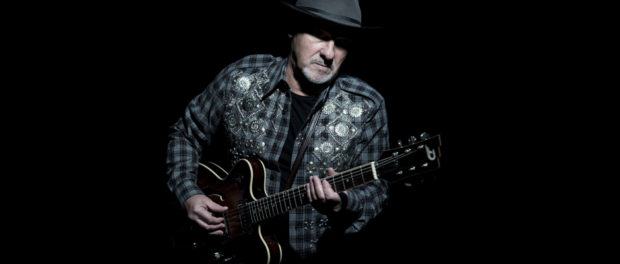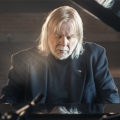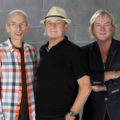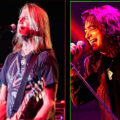A bountiful Paul Carrack concert box, tempting tidbits on Squeeze, Mechanics, Clapton
 Photos provided by Carrack-UK
Photos provided by Carrack-UK
The golden voice of Paul Carrack may be better known than his name thanks to taking leads on Mike + The Mechanics’ chart-topping “The Living Years,” Squeeze’s smash sing-a-long “Tempted” or Ace’s archetypical yacht rocker “How Long,” but that hasn’t stopped the veteran from retaining a loyal solo following and perpetual recording streak.
In fact, the immersive box set, “Live 2000-2020: The Independent Years,” shows just how much material he’s released during this century alone, alongside a generous helping of classics with a renovated outlook.
Although it’s been ages since Carrack came to America, Chicago Concert Reviews was able to track down English singer/songwriter for insight into this five-volume experience, a few of his biggest bands, co-writing for the Eagles and serving as a current Eric Clapton sideman.
How did you go about gathering the massive amount of material for your new live box set?
Paul Carrack: Easy. I got someone else to do it! I’m not a big fan of listening to myself, but fortunately I have a good friend who is. Pete Van Hooke, who I first met when we were both involved in the first Mike + The Mechanics album– he was the original drummer – had the unenviable task of going through hours of live recordings from the last 20 years, which is when he helped me to start my own homespun label Carrack-UK. Pete assures me that he went through these recordings meticulously and I’m inclined to believe him as I know that’s the kind of thing that he likes to do. He’s also my biggest fan and these days has morphed into my co-producer and manager.
What were a few tracks that really transformed in the concert setting during this 2000-2020 period you’re chronicling?
Carrack: There is a tendency when you write new material and record it to think that is the quintessential version, but it’s usually just the first stage as far as I’m concerned. It’s not until you get out on the road, playing a song every night, that you get really inside it and find its potential. A recent example would probably be “Bet Your Life,” which is from a recent studio album, “Soul Shadows.” This track really gives the band a chance to stretch out in the live situation.
 You seem to be even more active throughout those two decades than the prior ones. How do you stay motivated to record on such a regular basis?
You seem to be even more active throughout those two decades than the prior ones. How do you stay motivated to record on such a regular basis?
Carrack: Basically, I’m enjoying it. I have a nice space to work in and I’m having fun. Also, being totally independent of record and publishing companies has been quite liberating. One of the very few benefits of the dreadful virus is that I have time to get in the studio and mess around. I’ve spent a lot of time on the road over the last five or six years, not only with my own band, but also as part of Eric Clapton’s band playing organ, so it’s great to have the time and space to mess around and see what comes up. I’ve been pretty productive, which is just as well because all our touring activities have gone out of the window for this year at least.
What sets your independent years apart from your major label days?
Carrack: No comparison really. I think it was the right way to go and I’m glad I took the plunge. I made an album called “Blue Views” in 1996 for a label distributed through EMI. The album had moderate success, particularly in Spain, which was a surprise. EMI had me in for a pep talk saying I was going to be a core artiste and to get in the studio and get to work on a new album immediately, which I did with an album called “Beautiful World.” I worked really hard on it, but in the meantime, the whole A&R staff at EMI in London changed. When I took my album in for them to hear, I could tell within 30 seconds that they were not interested in even hearing it. The new regime wanted to make their own mark with their own signings. Understandable I suppose, but very dispiriting. When I picked myself up, I started to write an album called “Satisfy My Soul” in 2000, and with the help of a good friend who had some experience running a small label, I decided to go my own way.
Have you considered putting together a similar set for the 1980s and ‘90s, or is it a more complicated matter of masters and rights?
Carrack: That’s one of the reasons I started to build my own catalogue. I started to put together a compilation of my greatest hits, which was difficult because I realized that I actually had no rights to many of the recordings. That was either because I had signed bad contracts in my youth or because I was not actually a full member of various bands I had guested with. The biggest disappointment was with the Mike + The Mechanics hit “The Living Years,” on which I had sung lead vocals and which was an essential part of any compilation of my career. I was happy to pay a royalty, but was denied permission to use the track, so I had to use a live version. That’s really when the penny dropped, albeit late in the day, and I started to keep control of my recordings and compositions, and administer them myself.
You also recently released the “Love Songs” compilation. Could you share a bit about the huge Eagles hit you co-wrote, “Love Will Keep Us Alive,” that’s on the collection?
Carrack: That was a song I co-wrote with the late Jim Capaldi [Traffic] and Pete Vale. In 1994, I received an invitation from Don Felder and Timothy B. Schmit from the Eagles to go to California and write with them. This was before “Hell Froze Over.” Timothy, who I first met in 1975 on my first tour of America when “How Long” was riding high in the charts, and Don were keen to work in the absence of the Eagles getting back together. “Love Will Keep Us Alive” was a song I took over, and on the demo version with Timothy, Don and Max Carl [.38 Special], I was singing lead. To cut a long story short, the project didn’t come to fruition because eventually the Eagles did reform. Several months later, Timothy called me and said he would like to record “Love Will Keep Us Alive” for the new Eagles album, so of course, we were delighted.
 In addition to your solo career, you’re the singer of so many iconic songs for several bands you’ve fronted. Do you feel like you’ve gotten the recognition you deserve or is there still an aspect of anonymity to it all?
In addition to your solo career, you’re the singer of so many iconic songs for several bands you’ve fronted. Do you feel like you’ve gotten the recognition you deserve or is there still an aspect of anonymity to it all?
Carrack: On a global scale, there’s not a lot of recognition, but in the UK and Europe to some extent, I have worked hard to establish myself as an independent artiste who has sung some iconic hits, but who also is constantly producing new music. It’s just not possible to establish that kind of career in the USA as an individual because it’s so big.
You didn’t spend a ton of time in Squeeze, but your two tenures were arguably amongst the group’s strongest. How would you describe the dynamic?
Carrack: Interesting, exhilarating, fun, intense. On the first stint, I was the new boy joining an established group with their own, strong identity. Not the easiest thing to do, but I think I held my own. It was ironic that, although I really joined as a keyboard player, I actually sang lead on their breakthrough hit in the USA, “Tempted,” which was a little awkward.
In the Mechanics, how easy or difficult was it to shake any Genesis-related expectations because of shared guitarist Mike Rutherford?
Carrack: I’m not sure the general public were aware of the Genesis connection to start with, so it wasn’t too difficult in that sense.
Would you ever consider reuniting with him? Have you kept in touch or shared any opinion about the group’s continuation?
Carrack: I hadn’t spoken to Mike for several years until we got together recently to play on a charity show in London. It was good to see him and there were no hard feelings.
Give us a snapshot of what it’s like to play with Eric Clapton when you’re not making your own music.
Carrack: Fantastic. He is a class act and it’s an honour to play with him and all the other world-class musicians from the various line-ups I’ve been involved with over the last six or seven years.
Out of your many acts, what are the concerts from the Chicago area that might come to mind?
Carrack: We used to love a venue called Park West and also the outdoor venue whose name escapes me [Poplar Creek Music Theater].
It’s been ages since you’ve come to America. Will the “20/20” Tour ever make its way around these parts once it’s possible to continue live performances?
Carrack: I would love to tour with my own band in the USA. It’s the greatest place to play. Obviously, it’s the home of rock n’ roll, but for reasons above, it’s difficult to put the whole story together in order to grab the public’s attention.
For additional information on Paul Carrack, visit PaulCarrack.net.








